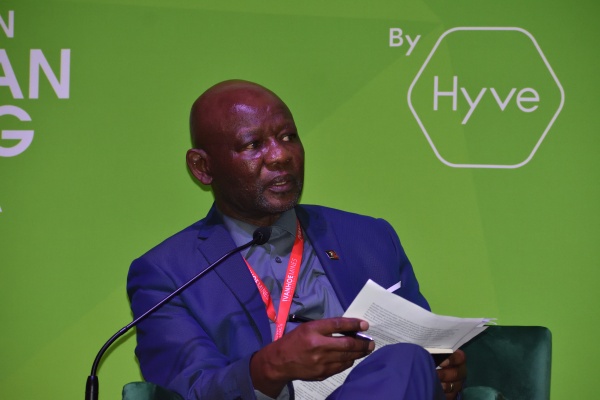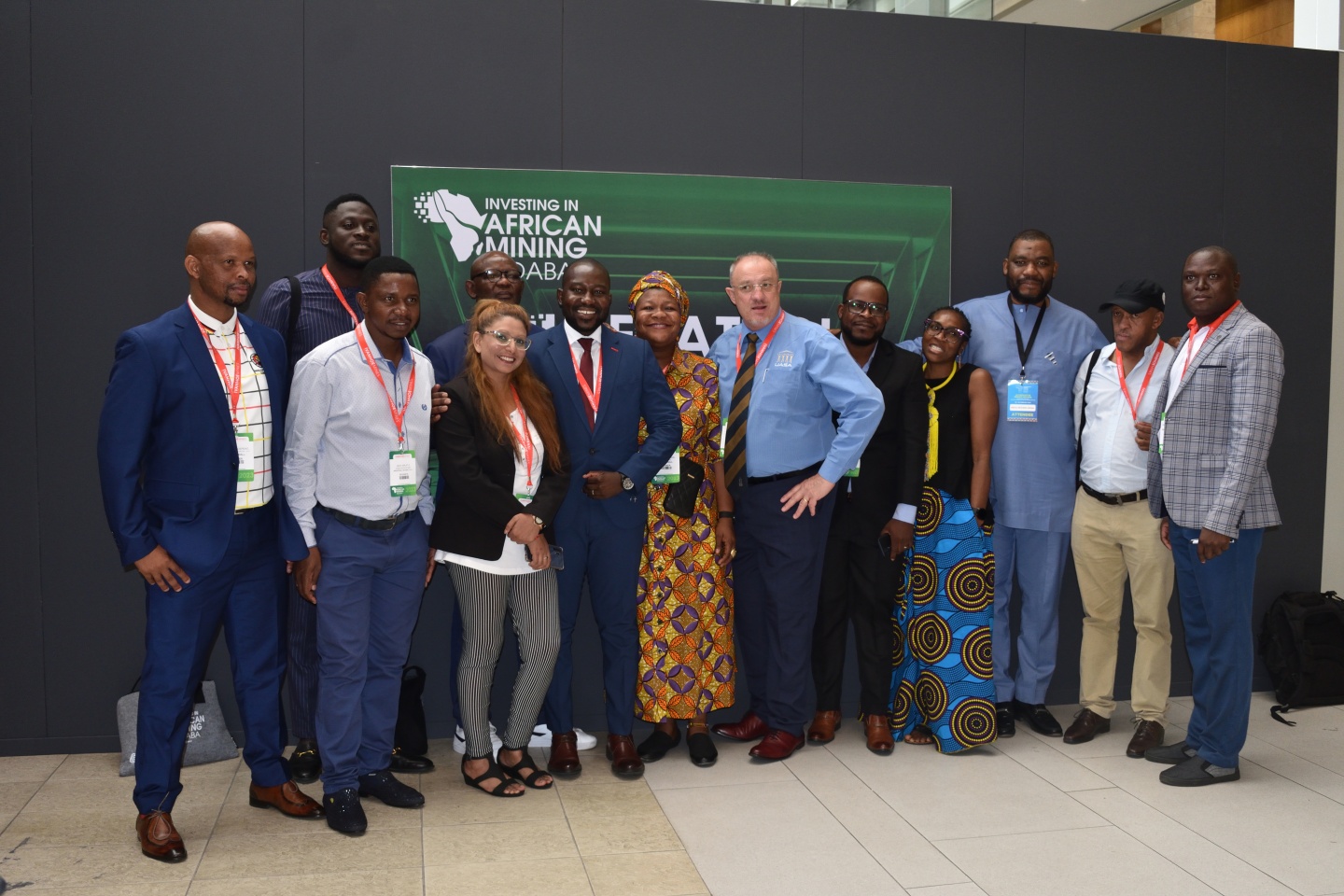9 February, 2023Will I have a job after the transition, what type of job, in which sector, and will I earn the same as I currently do? These questions, asked by workers in relation to energy transition, were the starting point for discussions at IndustriALL's panel at the African Mining Indaba in Cape Town on 8 February.
Glen Mpufane, IndustriALL director for mining, chaired the panel, “A conversation with the unions – beyond climate change, what are the other drivers of the impact in the world of work in the current transition, and trade union proposals for a mitigation pathway”, with presenters from IndustriALL affiliates; Botswana Mine Workers Union (BMWU), National Union of Mineworkers (NUM), National Union of Metalworkers of South Africa (NUMSA), and UASA – the Union.
IndustriALL emphasized the important role that labour plays in sustainable mining and environmental, social and governance strategies. The panels are a culmination of the recognition that unions have gained at the mining indaba through IndustriALL engagement with mining companies and conference organizers to recognize labour as a key stakeholder in the mining industry.
Phestus Motshabi, NUMSA shop steward said:
“Workers are deeply concerned about the transition. There are fears that mines will be closed because of decarbonization. We demand a Just Transition that is based on decent work and respect for fundamental rights at work in the International Labour Organization conventions. We want a conversation with mining companies where they are transparent and share their plans and strategies. The plans should cover the whole value chain.”
Tebogo Moepeng, NUM shop steward, added:
“The future of decent jobs is dire because precarious unsustainable jobs are expected to replace permanent jobs. But as unions we will continue to stand for decent, permanent jobs.”
Kitso Phiri, BMWU executive secretary, said social dialogue that includes key stakeholders is important.
“Social dialogue fosters consensus among stakeholders and can be used as a risk mitigation tool. To be effective it needs strong workers’ voices. In Botswana there are gaps in the social dialogue processes as workers voices are missing, especially in the high-level consultative forum at sectoral level where decisions are made. Workers are only participating at enterprise level.”
Towards Sustainable Mining – a global standard for sustainability in the mining sector – was mentioned as one of the tools that can be used to promote social dialogue in Botswana.
Melanie Roy, research manager for NUMSA’s economic research and policy unit emphasized:
“Union demands must address the dual nature of jobs – job creation and retraining/reskilling for new jobs. The transitioning of jobs in the automotive, energy, and mining sectors, policy cohesion, equity and diversity should be considered. For example, in the automotive sector, workers must acquire skills to produce electric vehicles.”
Franz Stehling, UASA divisional manager, said resources must be made by government to support retraining of workers for future jobs.
“In the case of South Africa, Just Transition should be discussed in the National Economic Development and Labour Council and resources for reskilling can be drawn from the Sector Education and Training Authorities.”
Glen Mpufane, said:
“Labour market sustainability is important in discussions on where the decent jobs will be created. Today's discussions resonated with the recommendations of the ILO Global Commission on the future of work which must be our reference point when we discuss a Just Transition. The commission’s recommendations respond to technological innovations, environmental and climate change, demographic shifts, global inequalities, and other factors.”

Glen Mpufane, IndustriALL director for mining
The mining indaba was officially opened by the presidents of South Africa and the Democratic Republic of the Congo, Cyril Ramaphosa and Tshisekedi who emphasized on the importance of minerals to socio-economic development in the two countries and cooperation through trade. The countries have minerals that are used in the manufacture of electric vehicles that include cobalt, lithium, manganese, nickel, and other rare earth metals.





